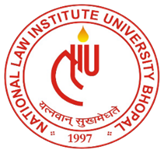B.Sc. LL.B. (Hons.) [Cyber Security]
The present course is blended with Law and Technology to impart a comprehensive understanding of the legal regime pertaining to Cyber Security, Data Protection, Blockchain Technology, Artificial Intelligence and multi-media protection etc. in India with a comparative critical perspective. This course attempts to make the students familiar with Indian law and to understand international developments in this area.
| B.Sc.LL.B. (Hons.) I Year (I Semester) | |
| Sl. No. | Name of the Subject |
| 1 | English I |
| 2 | Introduction to Cyberspace and Cyber Law |
| 3 | Introduction to Cyber Security |
| 4 | Law of Torts including MV Accident and Consumer Protection Laws |
| 5 | Common Law Method-I |
| 6 | Law of Contracts I |
| B.Sc.LL.B. (Hons.) I Year (II Semester) | |
| Sl. No. | Name of the Subject |
| 1 | English II |
| 2 | Data Privacy: Technology and Law |
| 3 | Data Structure, Algorithm and Computer Programming |
| 4 | Data Communication: Law and Technology |
| 5 | Operating System and Database Management System |
| 6 | Law of Contracts II |
| B.Sc.LL.B. (Hons.) II Year (III Semester) | |
| Sl. No. | Name of the Subject |
| 1 | Identity and Access Management |
| 2 | Cryptography, Network Security and Law |
| 3 | Constitutional Law I |
| 4 | Operating Systema and Database Management System |
| 5 | Family Law I |
| B.Sc.LL.B. (Hons.) II Year (IV Semester) | |
| Sl. No. | Name of the Subject |
| 1 | Security Architecture and Models |
| 2 | Clinical Course – I (Moot Court Exercise and Internship) |
| 3 | Constitutional Law II |
| 4 | Security Operation Centre, Threat Modelling and Law |
| 5 | Family Law II |
| B.Sc.LL.B. (Hons.) III Year (V Semester) | |
| Sl. No. | Name of the Subject |
| 1 | Law of Crimes I |
| 2 | Civil Procedure Code |
| 3 | Company Law |
| 4 | Property Law |
| 5 | E-Commerce and Fintech: Law and Security |
| B.Sc.LL.B. (Hons.) III Year (VI Semester) | |
| Sl. No. | Name of the Subject |
| 1 | Law of Crimes II |
| 2 | Law of Evidence |
| 3 | Public International Law |
| 4 | Clinical Course II |
| 5 | Information Security Risk Management |

Address
National Law Institute University, Kerwa Dam Road, Bhopal-462044
